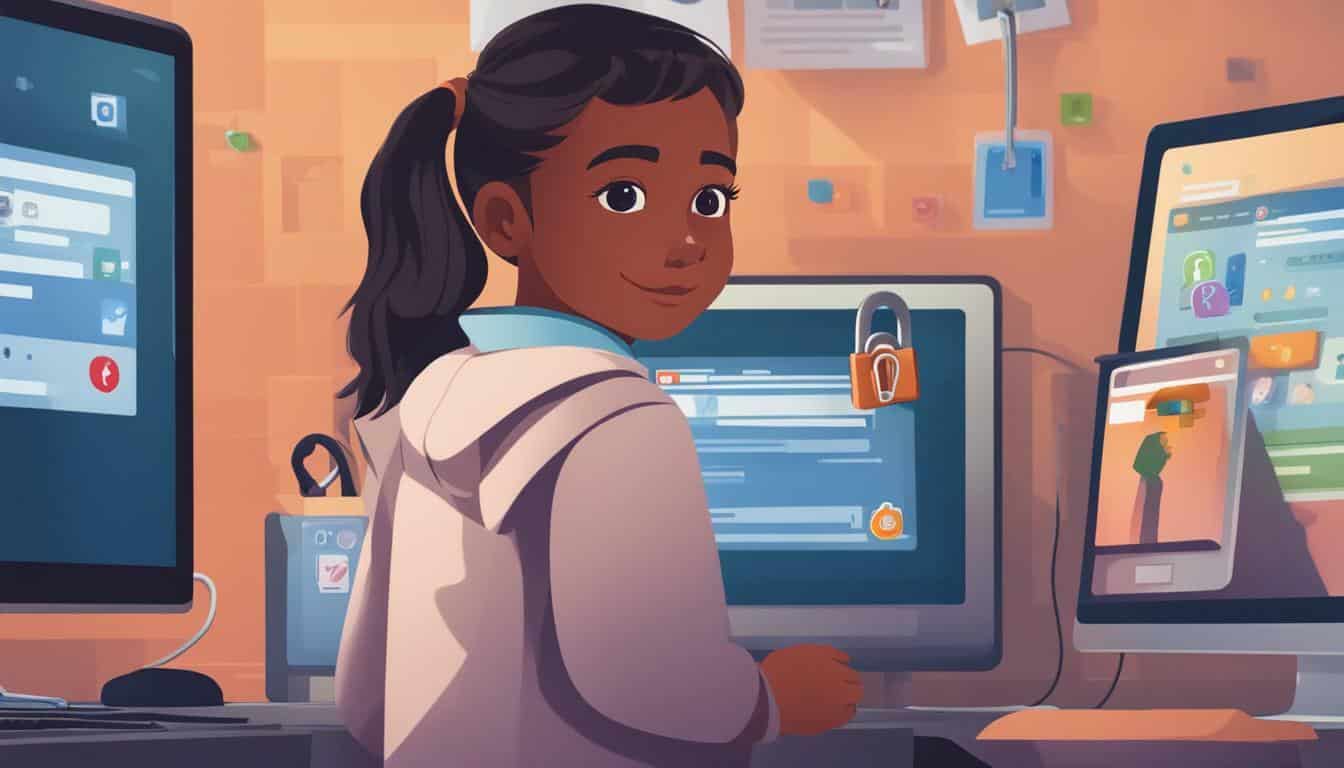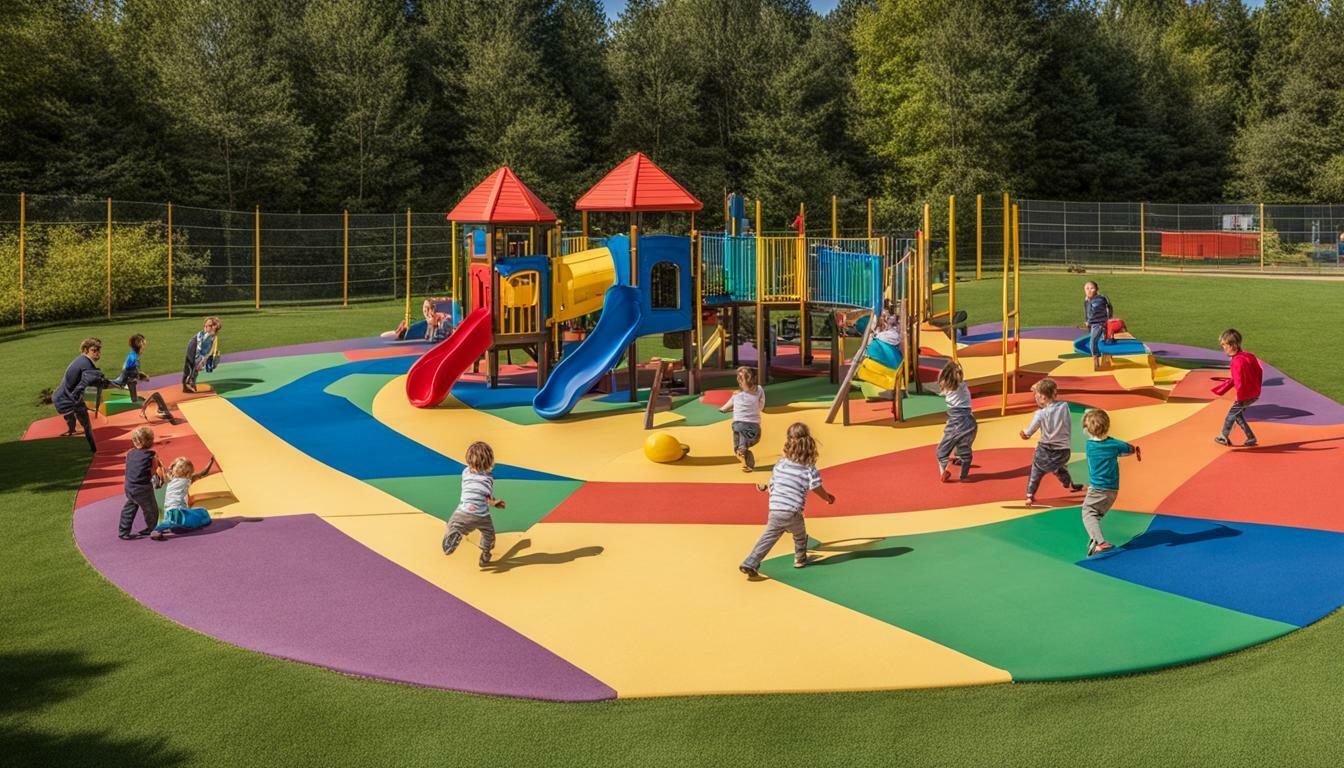Drug and substance abuse awareness is crucial for kids to understand the risks and consequences associated with substance use. It is a topic that requires open and frequent conversations between parents and children. By keeping lines of communication open and approaching the subject with love and compassion, parents can help their kids make informed choices and avoid dangerous situations.
Age-appropriate scenarios can be used to help children grasp the potential risks and consequences of substance use. Parents should emphasize the importance of taking care of their bodies through healthy habits like eating a nutritious diet, engaging in regular exercise, and getting enough sleep. These habits can contribute to overall well-being and help reduce the risk of substance abuse.
It is also important for parents to keep all substances out of sight and out of reach of children. This includes prescription medications, alcohol, and other potentially harmful substances. By creating a safe environment, parents can help prevent accidental ingestion or experimentation.
As children grow older, it becomes necessary to discuss substance-related messages they may encounter on television, social media, or at school. Parents should provide accurate information, address any misconceptions, and set clear rules and expectations regarding drug and substance use.
Additionally, building problem-solving skills is key to equipping children with the tools they need to navigate challenges and make positive choices. Parents can help their children develop effective problem-solving strategies and coping mechanisms, which can serve as protective factors against substance abuse.
Getting to know their child’s friends and their parents is another important aspect of preventing drug and substance abuse. By staying actively involved in their child’s life, parents can better understand their social circles and identify potential risks or negative influences.
Schools also play a significant role in drug abuse prevention. They provide education on the risks and consequences of drug use and offer resources such as lessons and activities to support drug prevention education. This collaboration between parents and schools creates a comprehensive approach to raising awareness and preventing drug and substance abuse among kids.
Key Takeaways:
- Open and frequent communication between parents and children is essential for drug and substance abuse awareness.
- Teaching kids about healthy habits and the importance of taking care of their bodies can help prevent substance abuse.
- Setting clear rules and expectations regarding drug and substance use is crucial.
- Building problem-solving skills equips children with tools to make positive choices and avoid risky behaviors.
- Parents staying engaged in their child’s life can help prevent drug and substance abuse.
- Schools play an important role in providing education and resources for drug abuse prevention.
The Importance of Open Communication
Creating an open and non-judgmental environment for discussions about drug and substance abuse is essential for empowering kids with awareness. By fostering a safe space where children feel comfortable expressing their thoughts and concerns, parents can play a crucial role in preventing drug abuse.
Open communication allows parents to educate their children about the risks and consequences associated with drug and substance use. Through age-appropriate conversations, parents can help kids understand the potential dangers and make informed decisions. It is important to approach these discussions with love and compassion, emphasizing that seeking help is a sign of strength, and not a sign of weakness.
In addition to addressing the risks, open communication also provides an opportunity for children to ask questions and seek guidance. Parents can teach their kids about healthy coping mechanisms and strategies to resist peer pressure. By establishing mutual trust and understanding, parents can support their children in making smart choices and staying away from harmful substances.
“Creating an open and non-judgmental environment for discussions about drug and substance abuse is essential for empowering kids with awareness.” – [Your Name]
The Role of Schools in Promoting Open Communication
While parents play a significant role in fostering open communication about drug and substance abuse, schools also have a responsibility to support these efforts. Schools can provide drug and substance abuse education to complement the conversations taking place at home. By offering comprehensive programs, schools can ensure that kids receive accurate information and understand the consequences of drug use.
Furthermore, schools can collaborate with parents to organize workshops or events that encourage open dialogue between students and their families. These collaborative efforts create a unified approach towards preventing drug abuse and provide children with consistent messages both at home and in school.
| Benefits of Open Communication about Drug and Substance Abuse |
|---|
| Empowers children with knowledge and awareness |
| Builds trust and strengthens the parent-child relationship |
| Equips children with the skills to make informed decisions |
| Reduces the likelihood of experimentation with drugs and substances |
Remember, open communication is an ongoing process. It is important to have regular conversations with your children about drug and substance abuse, adapting the discussions as they grow older and encounter new situations. By remaining engaged and non-judgmental, parents can effectively equip their children with the knowledge and tools they need to make healthy choices.

Instilling healthy habits in children is a key component of preventing drug and substance abuse. By teaching kids the importance of taking care of their bodies through proper nutrition, exercise, and adequate sleep, parents can equip them with the tools they need to make positive choices and maintain a healthy lifestyle.
One way to help children develop healthy habits is by involving them in meal planning and preparation. This not only teaches them about the importance of making nutritious food choices, but it also allows them to take ownership of their health. Encourage your child to choose healthy snacks, pack their own lunch, and help prepare meals. This will not only promote healthy eating habits but also create a sense of responsibility and self-reliance.
Physical activity is another essential aspect of a healthy lifestyle. Encourage your child to engage in regular exercise by participating in activities that they enjoy, such as sports, dance, or simply playing outside. Not only does regular physical activity improve overall health, but it also helps boost mood and reduce stress, which can be important factors in preventing drug and substance abuse.
Lastly, adequate sleep is crucial for the overall well-being of children. Establish a consistent bedtime routine and ensure your child gets the recommended amount of sleep for their age. A good night’s sleep not only helps with cognitive function and concentration but also plays a vital role in emotional regulation, which can impact their ability to make healthy choices and resist peer pressure.

| Benefits of Teaching Healthy Habits | Ways to Incorporate Healthy Habits |
|---|---|
|
|
Setting Clear Rules and Expectations
Setting clear rules and expectations is crucial in guiding children towards making positive choices and avoiding dangerous situations involving drugs and substances. As parents, it is important to establish boundaries that help children understand the potential risks and consequences associated with substance use.
One effective strategy is to have open and honest conversations about drugs and substances at an age-appropriate level. By using relatable scenarios, parents can help children understand the difference between make-believe and real life. This can include discussing the portrayal of substance use in media and explaining the potential harm it can cause.
To reinforce the message, parents should keep all substances out of sight and out of reach of children. This includes properly storing prescription medications and other potentially harmful substances. By doing so, parents can create a safe environment that reduces the risk of accidental exposure or experimentation.
Table 1: Tips for Setting Clear Rules and Expectations
| Tip | Description |
|---|---|
| Communicate openly | Engage in ongoing conversations about drugs and substances, listening and addressing any concerns your child may have. |
| Set clear boundaries | Establish rules regarding drug and substance use, clearly outlining expectations and consequences for breaking those rules. |
| Lead by example | Show your child responsible behavior and decision-making when it comes to substance use. |
| Monitor and supervise | Be aware of your child’s activities, friends, and online presence to ensure they are not engaging in risky behaviors. |
| Encourage healthy coping strategies | Teach your child healthy ways to manage stress and cope with challenging situations without turning to drugs or substances. |

It is important for parents to remember that setting clear rules and expectations does not guarantee that their child will never be exposed to drugs or substances. However, by establishing a strong foundation of open communication and clear boundaries, parents can empower their children to make informed decisions and equip them with the necessary tools to navigate challenging situations.
By actively engaging in conversations, monitoring their child’s activities, and providing guidance, parents play a crucial role in preventing drug and substance abuse. Together with schools and other supportive resources, we can create a community that prioritizes the well-being and safety of our children.
Building Problem-Solving Skills
Developing strong problem-solving skills can empower children to make healthy decisions and resist the temptation of drug and substance abuse. By equipping them with effective problem-solving strategies and coping mechanisms, parents can play a crucial role in their child’s ability to navigate challenges and make positive choices.
One way to foster problem-solving skills is to encourage creative thinking. Encourage your child to think outside the box and explore various solutions to a problem. This can help them develop critical thinking skills and the ability to assess different options before making a decision. By nurturing their problem-solving abilities, you are instilling in them the confidence and skills needed to tackle difficulties without resorting to substance abuse.
Another important aspect is teaching children how to manage their emotions. Help them recognize and express their feelings in a healthy manner. Emotion regulation is essential in preventing impulsive and risky behaviors, such as turning to drugs or alcohol as a coping mechanism. Encourage your child to talk about their emotions and provide guidance on how to handle challenging situations in a constructive way. This will enable them to develop resilience and avoid relying on substances as an emotional crutch.
Lastly, it is crucial to emphasize problem-solving skills in the context of peer pressure. Teach your child about assertiveness and how to say no in situations where they may be influenced to engage in substance abuse. Role-play scenarios can be a helpful tool to practice these skills. By equipping them with the confidence to stand up for themselves and make independent decisions, you are providing them with the tools needed to resist external pressures.

| Problem-Solving Step | Description |
|---|---|
| Identify the problem | Encourage your child to clearly identify what the problem is. This helps them understand the root cause and focus their efforts on finding a solution. |
| Generate possible solutions | Encourage creative thinking and brainstorm different solutions. Encourage your child to consider multiple options and evaluate their pros and cons. |
| Evaluate and choose the best solution | Help your child assess the potential outcomes of each solution and choose the one that is most likely to lead to a positive result. |
| Implement the chosen solution | Support your child in taking action and implementing the chosen solution. Provide guidance and resources if needed. |
| Review and evaluate the results | Encourage your child to reflect on the effectiveness of the chosen solution and learn from the experience. This helps them refine their problem-solving skills for future challenges. |
Remember, building problem-solving skills takes time and practice. Be patient, provide guidance, and celebrate your child’s efforts and successes. With your support, they can develop the skills necessary to navigate life’s challenges without turning to substance abuse.
Engaging in Their Child’s Life
Active engagement in a child’s life plays a crucial role in preventing drug and substance abuse by providing support, guidance, and a sense of belonging. As a parent, it is essential to be present and involved in your child’s day-to-day activities. By participating in their lives, you create opportunities for open communication and develop a deeper understanding of their thoughts, emotions, and experiences.

Spending quality time together allows you to build a strong bond with your child, fostering trust and mutual respect. By establishing a foundation of trust, your child will feel comfortable confiding in you about any concerns they may have, including peer pressure or exposure to drugs and substances.
Getting to know your child’s friends and their parents is equally important. This allows you to assess the influence of their social circle and ensure that they are surrounding themselves with positive role models. Encourage your child to invite friends over, organize playdates, or participate in group activities that promote healthy and drug-free choices.
Table 1: Benefits of Engaging in Your Child’s Life
| Benefits | Description |
|---|---|
| Open Communication | Establishing trust and creating a safe space for conversations about drugs and substances. |
| Positive Influence | Ensuring your child is surrounded by a supportive and drug-free social circle. |
| Understanding Their World | Staying informed about your child’s interests, activities, and challenges. |
| Opportunity for Guidance | Providing guidance and advice to help your child make informed decisions. |
Your active engagement in your child’s life also allows you to detect any warning signs of drug or substance abuse early on. By staying attuned to their emotions, behavior, and changes in routine, you can intervene promptly if necessary and seek appropriate support or counseling.
Remember, your role as a parent is to provide a solid foundation of love, support, and guidance. By staying actively involved in your child’s life and fostering open communication, you can significantly reduce the risk of drug and substance abuse. Together, we can empower our children to make positive choices and lead healthy, drug-free lives.
The Role of Schools in Drug Abuse Prevention
Schools play a vital role in drug abuse prevention by providing education and resources that empower students with awareness and knowledge about the risks and consequences of drug and substance abuse. By incorporating drug abuse education into their curriculum, schools are able to effectively address this important issue.
Through age-appropriate lessons and activities, students learn about the science behind drug abuse, its impact on the body and mind, and the potential long-term consequences. They also gain insights into the social, emotional, and psychological factors that contribute to drug abuse.
By discussing real-life scenarios and sharing stories of individuals who have struggled with addiction, schools help students understand the seriousness of substance abuse and its potential impact on their lives and the lives of others. These educational efforts not only raise awareness but also foster a sense of empathy and compassion.
In addition to education, schools provide resources such as counseling services and support groups for students who may be struggling with drug or substance abuse. These resources offer a safe and confidential space for students to seek guidance, share their concerns, and receive the support they need to overcome addiction.
FAQ
Q: Why is drug and substance abuse awareness for kids important?
A: Drug and substance abuse awareness for kids is important because it helps them understand the risks and consequences associated with substance use.
Q: How should parents approach the subject of drug and substance abuse with their kids?
A: Parents should approach the subject with love and compassion, keeping lines of communication open and using age-appropriate scenarios to help children understand the dangers of substance use.
Q: What can parents do to teach kids about the importance of taking care of their bodies?
A: Parents should teach their kids about healthy habits like eating right, exercising, and getting enough sleep to help them understand the importance of taking care of their bodies and prevent drug and substance abuse.
Q: How can parents set clear rules and expectations regarding drug and substance use?
A: Parents should address substance-related messages kids see on TV or at school, establish boundaries, and keep all substances out of sight and out of reach of children to set clear rules and expectations and keep them safe.
Q: How can parents help kids build problem-solving skills to prevent drug and substance abuse?
A: Parents can help kids build problem-solving skills by teaching them effective strategies and coping mechanisms to deal with challenges and stressors, which can contribute to preventing drug and substance abuse.
Q: Why is it important for parents to stay engaged in their child’s life to prevent drug and substance abuse?
A: Staying engaged in a child’s life allows parents to know their child’s friends and their parents, be aware of their activities and social circles, and provide guidance and support to help them make positive choices and avoid dangerous situations.
Q: What role do schools play in drug abuse prevention?
A: Schools play an important role in drug abuse prevention by providing education on the risks and consequences of drug use. They also offer resources such as lessons and activities to support drug prevention education.









